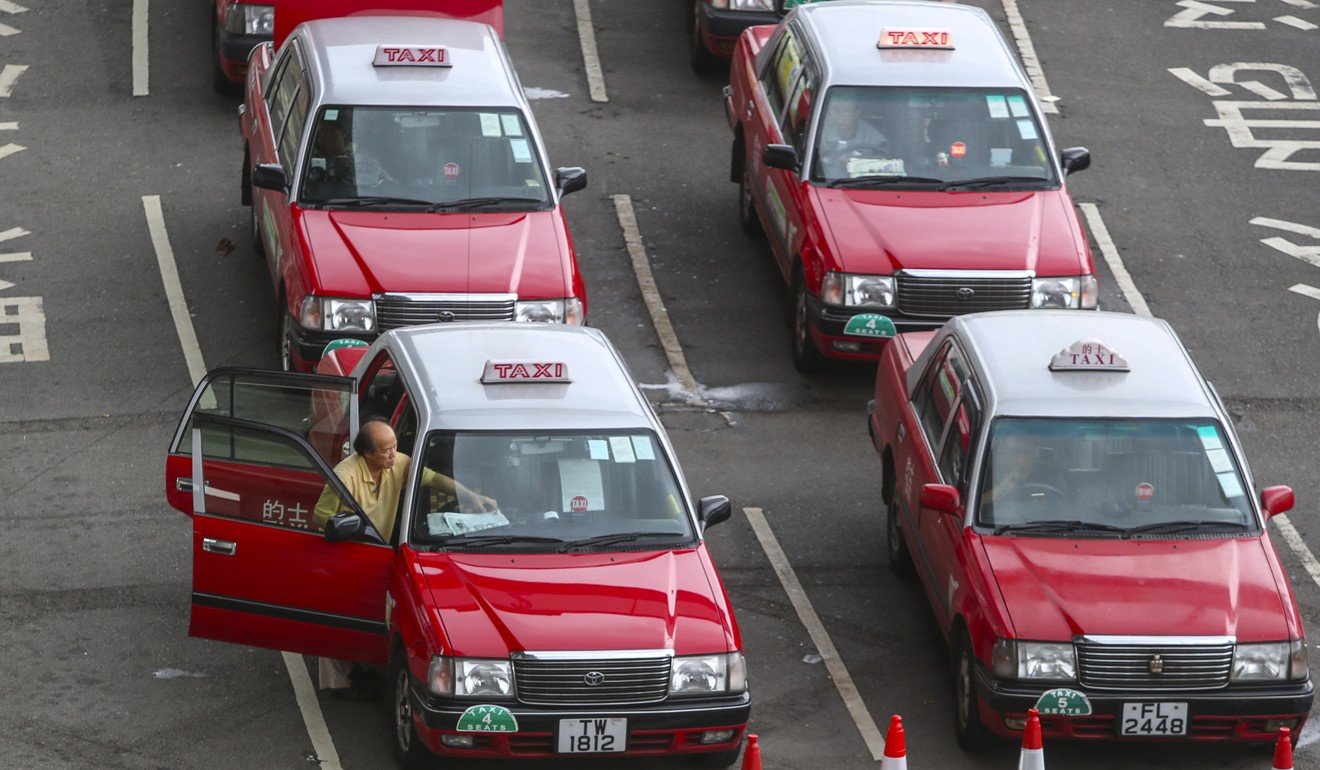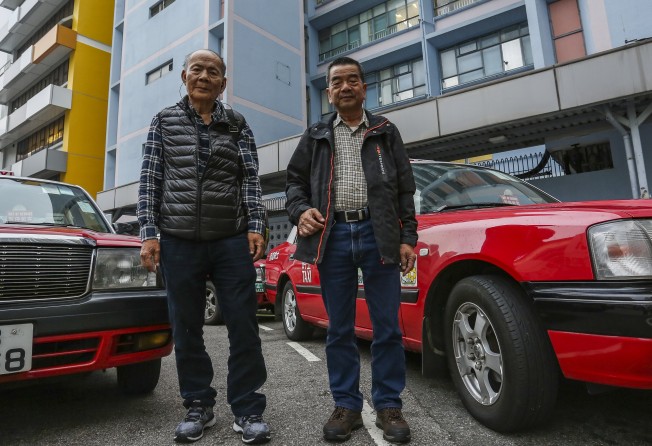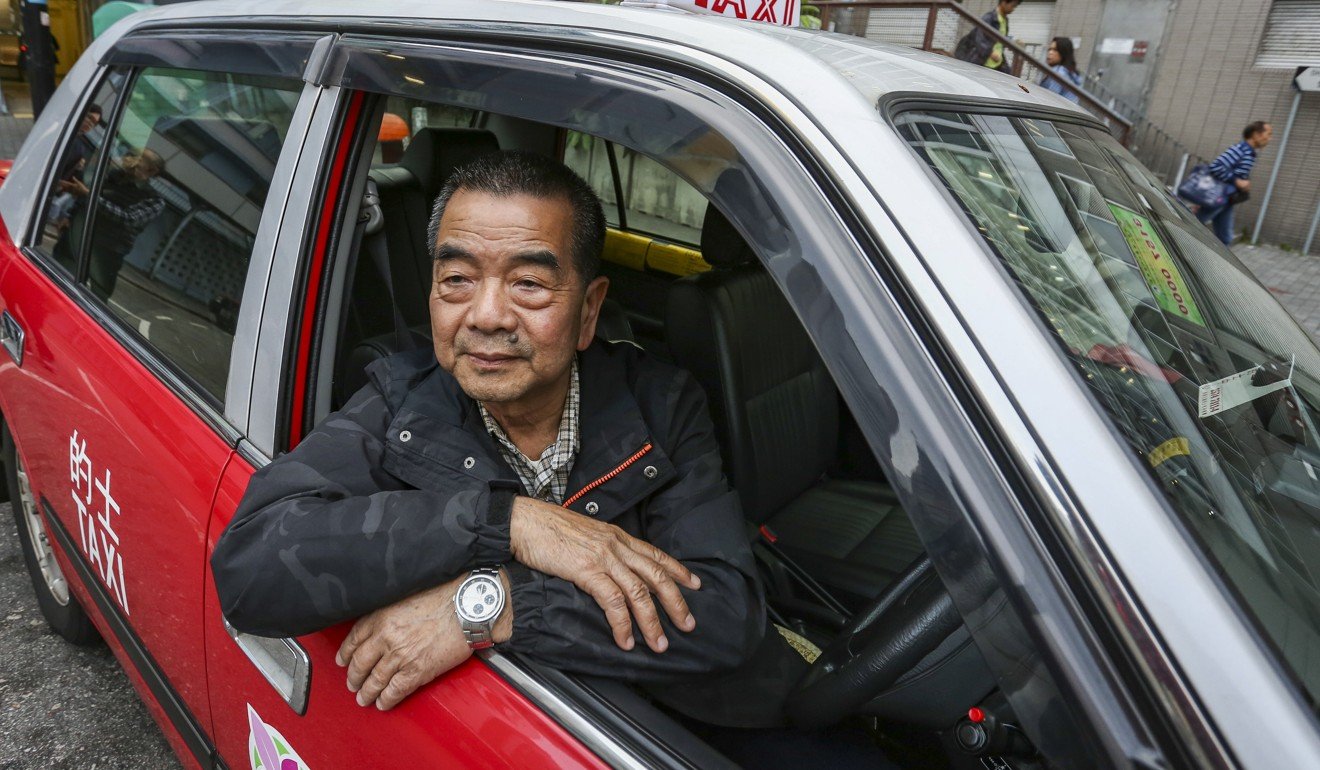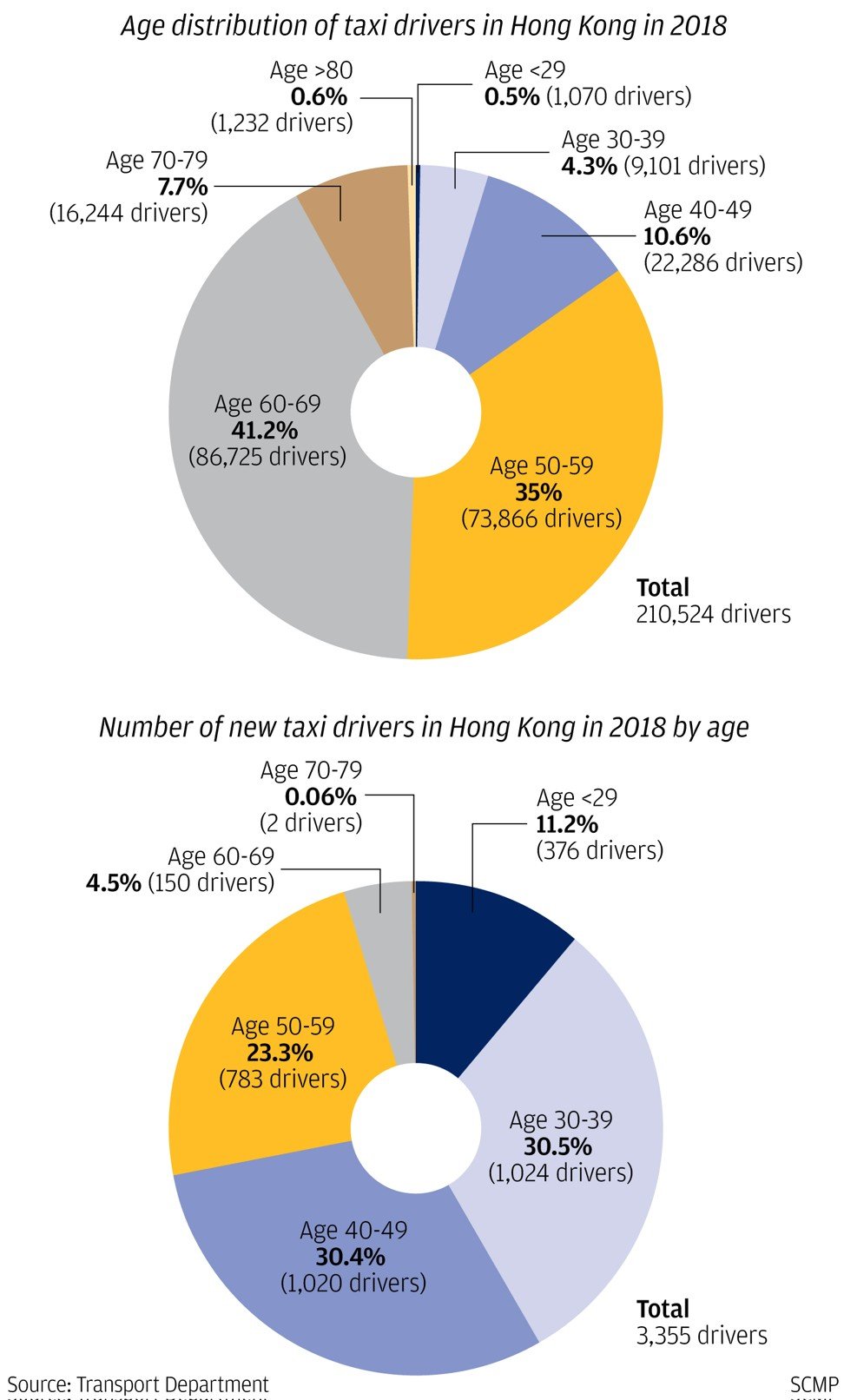
Nearly half of Hong Kong’s taxi drivers are 60 or above, sparking health concerns as industry struggles with lack of new blood
- Average age of city’s taxi drivers rises to 58.4 years, while there is no set retirement mark and official data shows more motorists above 60 have been involved in accidents
- Observers suggest adopting Singapore model of regular health checks for elderly drivers

Nearly half of all Hong Kong taxi drivers are aged 60 or above – a worrying trend, according to a lawmaker amid calls for more thorough health checks to ensure cabbies are fit.
The concerns are in line with a rise in the number of accidents across the city involving older drivers. According to the Transport Department, by the end of last year, 49.5 per cent of the city’s 210,524 licensed taxi drivers were aged 60 or above, with most between 60 and 69.
The average age of taxi drivers crept to 58.4 years this month, up from 58 in 2016. Only 4.3 per cent, or 9,101 cabbies, were aged between 30 and 39. The minimum age for taxi drivers in Hong Kong is 21 and there is no retirement age.

Taxi Council vice-chairman Ng Kwan-sing said the lack of new blood was a concern.
“If the ageing continues, it will be hard to push for the use of technology and reforms in service quality,” he said, adding that older drivers had a harder time learning how to use their mobile phones for navigation and monitoring traffic.
While he felt it was wrong to assume that older drivers were in poorer health, Ng urged the government to provide more voluntary health assessments for them.
Professor Sylvia He Ying of Chinese University’s department of geography and resource management said it was likely that the average age of the city’s taxi drivers would continue to rise.
With young people reluctant to join labour-intensive industries, she said, older drivers would remain in demand.
While she felt it was a positive thing for capable and able-bodied people – including those in their advanced years – to continue working, He said existing regulations might not be enough to ensure cabbies were fit enough to spend hours behind the wheel.
Transport Department data also showed that more motorists aged 60 or above were involved in traffic accidents in recent years.
Between 2007 and 2017, the number of drivers aged 60 and above involved in accidents tripled from 1,148 to 3,787. The number of all drivers under 60 involved in traffic accidents dropped from 19,889 to 18,887 over the same decade.
In light of the latest figures, both Sylvia He and Civic Party lawmaker Jeremy Tam Man-ho agreed that older drivers should undergo more detailed health assessments.
While there is no upper age limit for driving in Hong Kong, all motorists must submit a medical certificate when they renew their driving licence beyond the age of 70.

A doctor must certify that the driver does not suffer from any medical conditions that affect the ability to drive and control a vehicle, and state if the person needs glasses or a hearing aid.
Singapore has a more stringent system to ensure taxi drivers are fit to drive. Like all motorists in Singapore, cabbies must clear a medical check-up upon reaching 65 to ensure they are fit to continue driving.
At 70, cabbies must undergo a health check and pass a road test to have their licences extended for three years. After that, they need annual health screening to continue driving and they must retire at 75.
Tam said Hong Kong should introduce a similar system of regular health checks for older drivers, but both he and Sylvia He were against having a fixed retirement age for cabbies.
“That should be based on one’s health,” Tam said.
Sylvia He said drivers had a social responsibility to ensure they were fit to be on the road.
“I think all drivers, especially professionals, have a duty to review their health and check if they are still fit to work long hours,” she said.
I think all drivers, especially professionals, have a duty to review their health and check if they are still fit to work long hours
Taxi drivers in Hong Kong usually work 12-hour shifts that start either at 6am or 5pm. Despite the long hours, many do not find retirement appealing.
Taxi unionist Low Shih-cheng, who turned 70 recently, said he did not want to add to the financial burden of his children.
“Even if you ask for HK$100 a day, it will be a big burden, as they might have their own families,” said Low, who is deputy director of the Motor Transport Workers General Union’s taxi branch.
He said drivers are self-employed and do not have pension schemes. Those without savings need their daily income of a few hundred dollars.
Cabby Chan Kun, 75, who still works two to three days a week, said: “If I don’t work I’ll be bored to death. You can only spend so much time at the park.”
